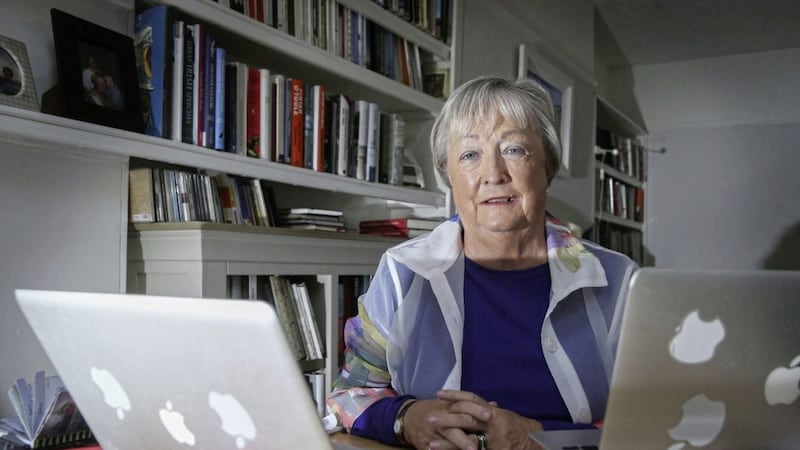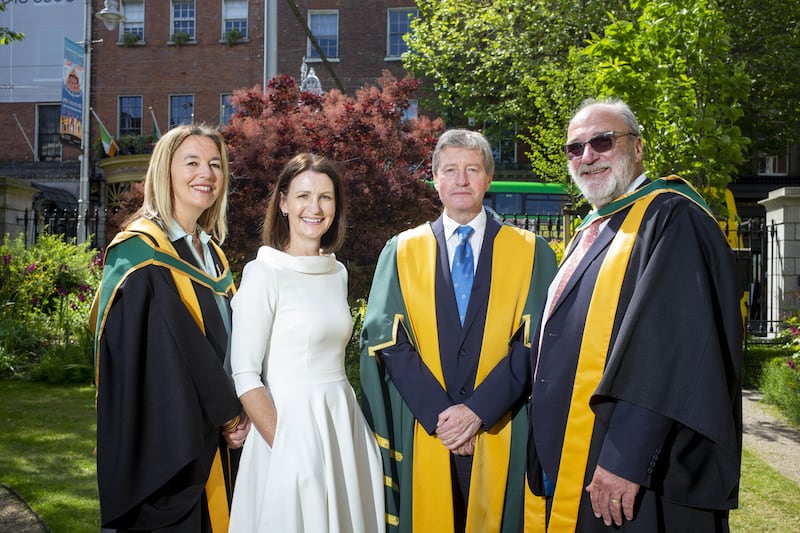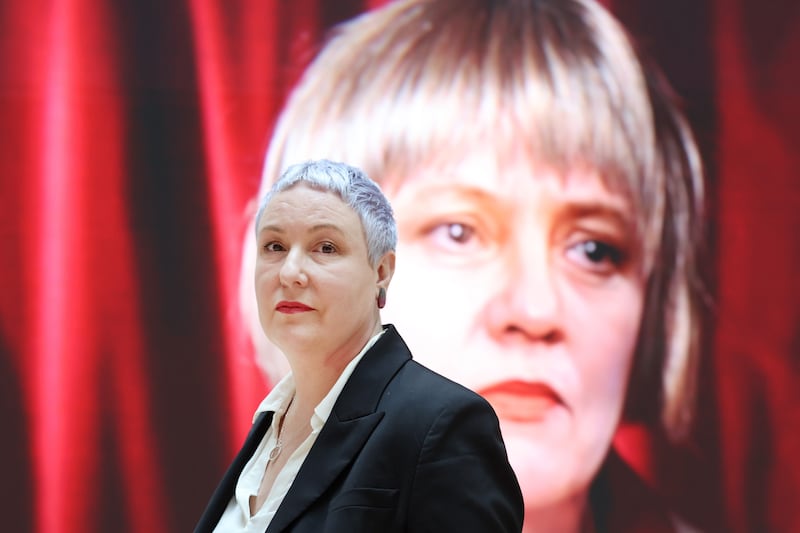NOTHING would ever tempt Monica McWilliams back into politics "with a capital 'P'" but these days, at "almost 68", the well-known 'Peace Woman' is working harder than ever in small 'p' politics, as she calls it, and is just as tenacious in pursuit of justice and equality as ever she was.
The tense, heady days sitting around the table at Stormont, about to sign the 1998 Good Friday Agreement as co-founder of the Women's Coalition remain a vivid memory, though; one that never fades too far into the background.
When we spoke to talk about her new book, aptly named Stand Up, Speak Out, the latest political crises had yet to unfold, but as McWilliams points out in her personal, revealing and often humorous account of life in big-P Politics and beyond, as arguments raged around her, she always held fast to her father's belief that "for every problem, there has to be solution". She still does.
Retired since 2014 from her lecturing post in Women's Studies at Ulster University – for which she remains Emeritus Professor in the Transitional Justice Institute - her work with Women's Aid, WAVE Trauma Centre, Syrian women's groups and with the Independent Reporting Commission on paramilitary activity takes up most of her time, but during lockdown, she decided to write a book.
The pandemic was a factor, as the "accidental activist and politician" suddenly found herself not being able to travel for meetings in Syria, Turkey, Rwanda or Geneva (as chair of Interpeace) but it was her guest slot on BBC Radio 4's Desert Island Discs that set things rolling.
"That's how the publisher [Blackstaff Press] found me and asked me to do the book," says McWilliams, a former chief commissioner with the Northern Ireland Human Rights Commission.
"I had always wanted to write a memoir and, suddenly, I had no excuse. I had 60 years of diaries to call upon, so it was really interesting re-visiting them - especially the teenage ones - but I really wanted to leave behind a record of the [transitional] times I found myself in," she explains.
"I wanted to give the next generation a sense of what it was like to be in that room. I also wanted to correct some of the inaccuracies that I have found in a number of other accounts of the peace process, particularly those of male commentators and historians who do not think what women did was important enough to document."
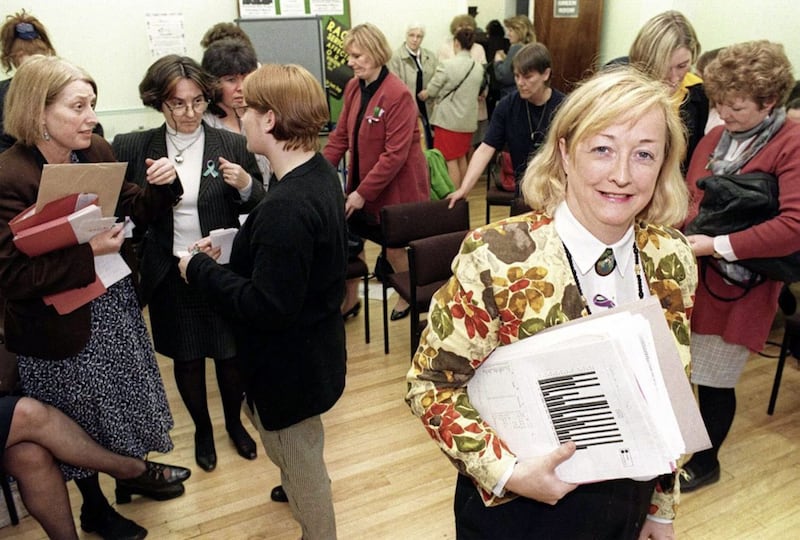
Misogyny was rife in the political arena of the time and McWilliams details many shocking examples of what she had to put up with after being elected with Pearl Sagar in 1996 under the campaign slogan, 'Wave Goodbye to the Dinosaurs'.
Some of the worst came via the Forum [for Dialogue and Understanding] at which the Co Derry-born academic was referred to as a "silly woman" and told to "sit down". During one of her speeches, she heard Ian Paisley Jnr holler "Moo, Moo, Moo", while during the talks with Senator George Mitchell, the Women's Coalition members heard themselves referred to as "typical little housewives" who should only be at a table "they were going to polish".
Typically, McWilliams let it all run off her with instinctive good grace, ever-ready with a polite and clever retort, but always looking to the bigger picture - peace.
Humour was a safety valve, even when things were far from funny, but she credits her upbringing in the village of Kilrea, where she loved "being in the thick of things, whether perched on a bar stool chatting to the cattle dealers or chasing stray sheep" for an abiding ability to remain unruffled.
"During the peace talks, there were some real characters around that table, but Northern Ireland people have that sense of bringing everything down to basics and that would be to tell stories," she says.
"That was happening as part of the negotiations and I identified with that because in our own home, my father, who was very civic-minded, was a very good storyteller. He knew when humour was appropriate, but he also had a good grasp on reality.
"The direction I have taken comes from my mother's wish to keep the peace and my father's desire that I should stand up for myself."
In the turmoil of the late 1960s, reality gave way to the surreal as the Troubles became "normalised" for the 16-year-old McWilliams who would later would cut her political teeth in the Civil Rights protests and within feminist groups and the trade union movement.
"At times, you couldn't believe the things we were saying to each other," she recalls. "Kilrea had three very big bombs, two of them opposite my own home, but still, we all went to the dance that Friday night. That was how people coped."
Threaded through with the politics and meetings with presidents and prime ministers, she recounts the personal, among them a short-lived romance with the actor Liam Neeson - during which she was "talking politics most the time" - meeting her husband, Brian, a fellow member of the Belfast Campaign for Nuclear Disarmament, the birth of her sons, Gavin and Rowen, and some of their own milestone moments she had to miss.
She also writes of her breast cancer journey ("the wigs were far in advance of the one Mo Mowlam had to wear") and the death by suicide of her sister Noeleen, to whom she jointly dedicates her book, alongside "soul companion" and sister Mary, also a cancer - and serious car accident - survivor.
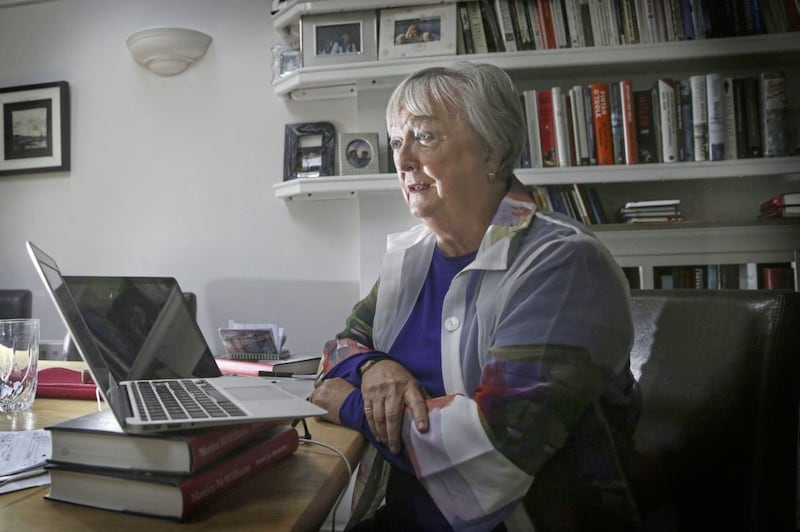
There have been many successes - she is most proud of her work on domestic violence and an Ulster University report report that "helped break new ground" for current legislation. And, as human rights commissioner, she successfully pressurised the Department of Health to end the 'postcode lottery' and fund the breast cancer drug, Herceptin - not realising that seven years later, in 2013, she would need it herself.
"What I failed to do and what is my biggest regret is that we couldn't do more for our sister [Noeleen] who passed away as a result of suicide in 2017," she says. "The mental health system was atrocious, compared to how it deals with physical health and compared to my own experience with breast cancer. It had been there for me, but it wasn't there for Noeleen."
Today, as a cancer survivor, looking after her health is a priority and she does yoga, cycles and takes walks on the beach with her sister Mary who lives in Portstewart. She 'switches off' by reading, continuing with life-long French lessons and cooking - recently rising at 3am to cook lasagne, jetlagged after a trip to Chicago to visit her newly married son.
"I have to make health 'number one', but I'm not great at it, as my sister will tell you," she adds. "I do work too hard, still, and that is my family's frustration. I have kept that desire to see change and I'll never stop, but Noeleen's struggle to find peace of mind and Mary's determination to walk again after her car accident showed me that being at peace comes from the inside."
Stand Up, Speak Out by Monica McWilliams is published by Blackstaff Press, £19.99.
